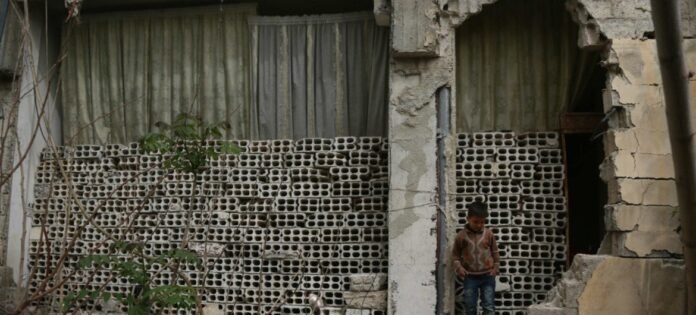Earlier, UN Secretary-General Antonio Guterres said on Wednesday that Special Envoy Pedersen was in contact with all sides in Syria and efforts were being made to move towards a peaceful future led by local civilians.
Speaking to reporters in Pretoria, South Africa on Wednesday, he said the United Nations is making every effort to support the transfer of power in Syria without any obstacles.
The UN chief stressed that there are signs of hope for Syria’s future and that an inclusive political process must fully respect the rights of all minorities.
In his statement on Thursday, Special Envoy Pedersen focused on the image and plight of prisoners released from former regime prisons.
In the past few days, after the fall of the Assad regime, pictures have emerged of Syrian prisoners being released from other prisons, including Sednaya, where they were held in extremely poor conditions.
“Despite extensive information and testimony, this only scratches the surface of the horrors of the prison system.” He said that these pictures show the indescribable pain these prisoners and their families have to endure.
According to the Special Envoy, now is the time to take decisive, compassionate action and in this process the international community and all relevant parties must provide assistance to the families of the missing and detained.
This includes providing medical care, psychosocial support, legal aid and safe shelter.
He emphasized the importance of gathering evidence of crimes committed in Syrian detention centers and in the case of missing persons to support families seeking justice and accountability.
Support for prisoners, accountability for criminals
According to the Special Envoy, in addition to meeting the humanitarian needs of prisoners released from Syrian prisons, it will also be necessary to care for the countless people held in the custody of other groups in the war-torn country.
Geir Pedersen appealed for their immediate release and called on various UN agencies, such as the Independent Institute for Disappeared Persons (IIMP), the International Impartial and Independent Mechanism (IIIM), and the International Commission of Inquiry (IOC). Requested to cooperate on Syria.
Meanwhile, the UN-backed Organization for the Prohibition of Chemical Weapons (OPCW) is preparing to send an expert team to Syria and the process will be progressed according to the security situation.
The agency’s director general, Fernando Arias, said Syria had never provided full information about its weapons program under the Assad regime, despite using them repeatedly during the long civil war.
According to Director General Arias, his agency’s goal is to completely eliminate Syria’s chemical weapons program and hold perpetrators accountable within the former Syrian government.
Abdullah, 6, stands in front of a wall where he and his sister were pulled from the rubble after shelling in Syria.
WFP’s aid efforts
Meanwhile, the World Food Program (WFP) is busy increasing the scale and scope of its food aid program in Syria. Efforts are underway to provide assistance to the 2.8 million displaced and food insecure people in the country.
Syria was already grappling with instability due to the ongoing war of the past decade and a half, the recent escalation of violence in neighboring Lebanon and the fighting between Israel and Hamas in Gaza.
Against this backdrop, groups of armed fighters quickly mobilized to capture Syrian cities and soon took control of the capital, Damascus. Former President Bashar al-Assad had to leave Syria.
WFP Country Director for Syria Ken Crossley said this is a critical time for Syria. WFP teams are working to deliver essential food to the most vulnerable communities on the ground.
Food prices have increased in the country, the Syrian currency is falling. Essential commodities such as rice, sugar and oil are in short supply and the price of bread has risen. For this reason, it has become necessary to increase the level of food assistance.
The U.N.’s food agency says $250 million is needed over the next six months to provide aid to 2.8 million displaced people and people in vulnerable situations.

